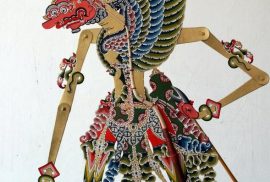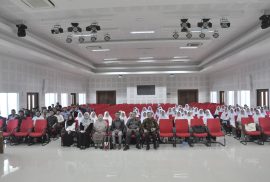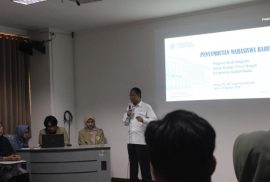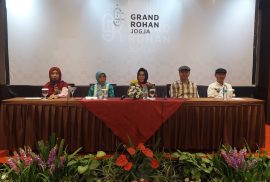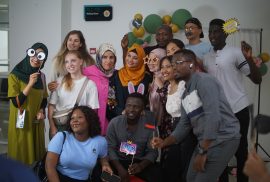The Faculty of Cultural Sciences (FIB) Universitas Gadjah Mada (UGM) has a variety of students with a myriad of achievements, both in academic and non-academic fields. This time, good news came from one of its students, Muhammad Siswoyo, from the Javanese Language, Literature, and Culture Study Program. The 2022 student won third place in the essay competition at Parab Kawi #6, a prestigious event with the theme “Luhuring Kabudayan lan Kasusastran Jawi, Amrih Kalokaning Nagari.”.
This year’s Parab Kawi competition featured two categories, essays and calligraphy. In the essay category, the sub-theme was “Tradition of Javanese Cultural Values, Knowledge, and Technology.” On this occasion, Muhammad Siswoyo presented an essay entitled “Psychological Depiction of Raos Gathotkaca Krodha as a Destructive Entity in Pocapan Abur-aburan Gathotkaca Wayang Kulit Jawa Timuran”.
The essay discusses the pocapan (narration of an event in a shadow puppet performance) Abur-aburan depicting Gathotkaca Krodha, ‘Gatotkaca who is angry’, especially on the body parts of one of Werkudara’s children. The limbs of Gathotkaca Krodha are likened to various tools of destruction, such as scissors, pacul, etc. This is in fact relevant to the shape of the Gathotkaca Krodha puppet, which is also depicted in this way. This concept is also in line with the psychology of raos, which links a person’s emotional state with the ability to create certain states, such as anger and destruction.
Shadow puppetry is not only an art form, but also a ‘miniature’ of Indonesia’s cultural diversity. It contains various elements of art, from the presentation, to the play, to the details of the puppet form and its existence. The art of storytelling in shadow puppet shows also plays an important role in ‘animating’ the show and delivering the audience to the ‘gate’ of literature as well as moral messages and philosophical meanings.
Exploring cultural knowledge can be done to find out the worldview of a society. By knowing the mindset of the community, we can improve education while understanding diversity in a frame of harmony. Thus, the competition is in accordance with the points of the Sustainable Development Goals, namely point 4 (improving the quality of education) and point 17 (partnerships to achieve goals).
IMAGE REFERENCE
Tokohwayangpurwa.blogspot.com. (2009, October). Gatotkaca. Accessed at https://tokohwayangpurwa.blogspot.com/2009/10/gatutkaca.html.
Author : Haryo Untoro

